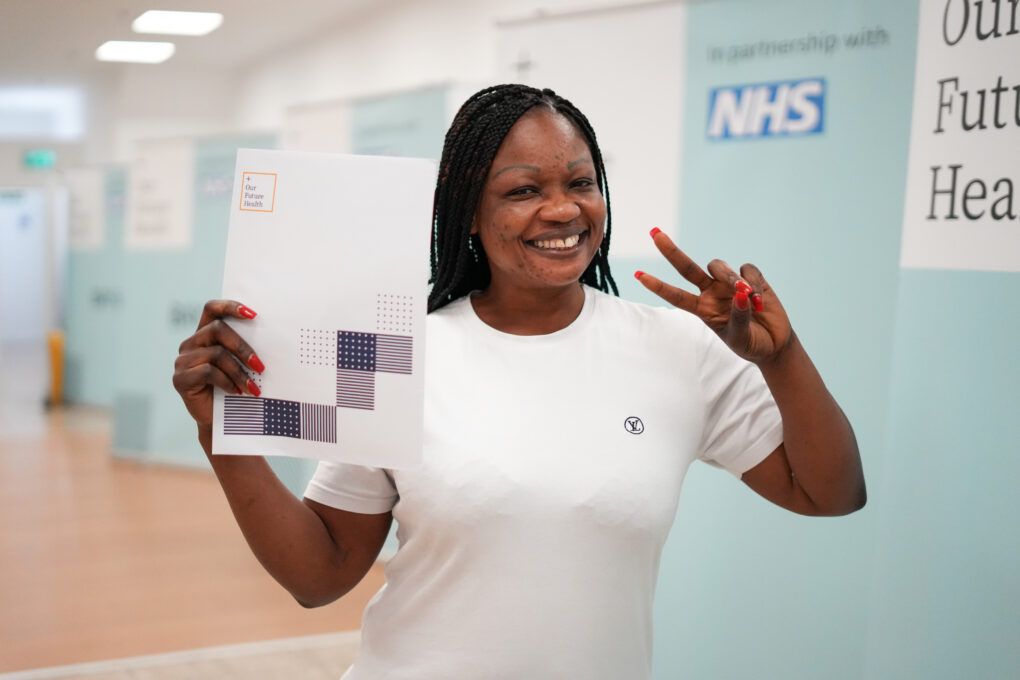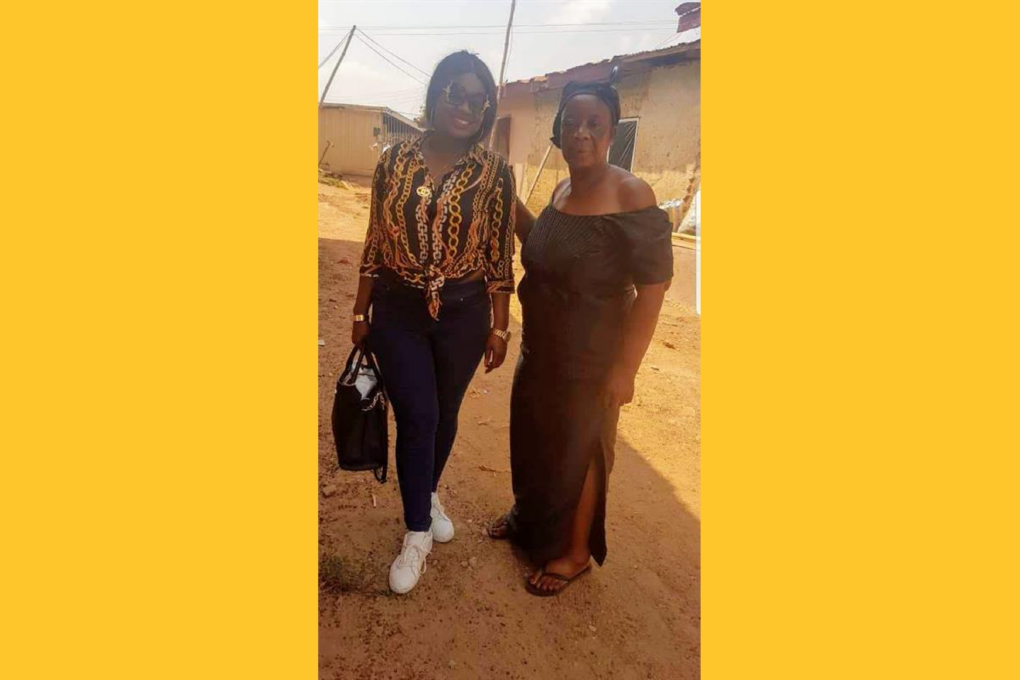‘Glaucoma runs in my family. I joined Our Future Health to stop history repeating itself’

Gloria Agyemang has seen the same fate play out among her loved ones again and again. It starts with blurred vision, is followed by intense eye pain, and ends, sadly, with the complete loss of sight.
Glaucoma, a highly genetic eye condition, runs in Gloria’s family. It has already blighted many of her relatives – but today, Gloria, 42, is on a mission to help change the narrative, for herself, her children, and for future generations.
The senior healthcare assistant from Coventry is taking part in Our Future Health to help vital research into glaucoma, so families like hers can live without fear of losing their sight.
A long family history
During her childhood in Ghana, Gloria’s grandmother, great aunt and great uncle all began experiencing eye pain and poor vision as they grew older. One by one, they were given eyedrops and glasses to help treat their symptoms.
Unfortunately, what Gloria now knows was glaucoma had set in. The disease causes a build-up of pressure in the front part of the eye, which damages the optic nerve. If left untreated, glaucoma can lead to irreversible sight loss.
Eventually, all three of Gloria’s relatives suffered blindness. They spent the last chapter of their lives living indoors – the last thing Gloria wants for anyone else in her family.
“My mother has now been diagnosed with glaucoma too and struggles a lot with blurred vision,” she says. “It’s clear that this condition is strongly linked to my family genetics, which is alarming to me. I have three children, two boys and a girl, and I want to do everything I can to protect their vision.
“If there’s anything I can do to help prevent myself and others from going through what happened to my relatives in the future, I’m going to make sure I do it.”

The importance of translational research
The good news for people with glaucoma is there are effective treatments out there – but they only work when the disease is caught early, before the optic nerve becomes too damaged.
Though optician tests for glaucoma are very good, 8 out of 10 referrals actually end up being false positives, burdening secondary care services with follow-up appointments of people who are healthy. This is where Our Future Health can help.
“We have designed the programme to improve the health of the UK population by ensuring it supports translational research – boosting earlier diagnosis, improving prognostic assessments, and testing more novel therapeutics,” explains Dr Michael Cook, Executive Director of Science at Our Future Health.
“For glaucoma, we hope to be able to assess whether an integrated risk score – which combines lifestyle and genetic aspects of risk – will enable screening programmes to be more cost-effective for the NHS as well as the public, reducing the worry and burdens associated with false positive referrals. Our Future Health will also facilitate research to help understand why there are differences in risk for people from different backgrounds, what the main risk factors for glaucoma subtypes are, and how we may better prevent and treat each type of glaucoma.”
You can find out more about Our Future Health and glaucoma by reading our interview with eye specialist Dr Anthony Khawaja.
Improving healthcare – for everyone
Now they know about their genetic vulnerability, Gloria and her family are careful to attend their regular check-ups. Gloria says she wants to spread the message among her community too, as Black people are believed to be more at risk of the disease.
Recent research has found that there is a higher prevalence, earlier onset, and more rapid progression of glaucoma among people of African, Caribbean or Asian descent. There is growing evidence of genetic and physiological differences contributing to these disparities.
Gloria says it’s a sign that healthcare should not take a one-size-fits-all approach. “For example, I know that I personally need to take a vitamin D supplement because it’s harder for me to absorb it from the sunlight here in the UK,” she says. “I think this same rule can be applied to other areas of healthcare, like glaucoma. Sometimes there’s a lack of focus on these differences – and that needs to change.”
By bringing together a diverse group of volunteers that reflects the UK population, Our Future Health will help to close these healthcare ‘gaps’. Researchers will be able to identify differences in how diseases like glaucoma begin and progress in people from different backgrounds, so that new discoveries work for everyone.
Better to know than wait for problems to begin
Ultimately, Gloria believes that volunteering for our research programme is an opportunity to improve the health of everyone.
“I am hopeful that the research that comes out of the work at Our Future Health will lead to glaucoma being spotted and stopped earlier and earlier, and benefit my children in the future”, she says.
“When you have your health, you have everything. When you’re unwell, everything is much harder – working, going out, having fun. You don’t always know what’s going on inside you, so please don’t sit at home and ignore what’s happening until it’s too late.”
Glaucoma: spotting the signs, and what to do next
Detecting glaucoma is a job for experts – the condition is often symptomless and develops differently in different people. However, there are signs that you should pay attention to, as they could be telling you something important about your sight:
- Misty or blurry patches in your vision, particularly if you close one eye
- Intense eye pain and tenderness around the eyes
- Halos around light sources
- A red eye
If you experience these, the best thing to do is book yourself in for a routine eye test at your opticians as soon as possible.
Did you know? People aged 40 or over with a close relative – parent, sibling or child – with glaucoma are eligible for free eye tests.
To find out more, visit:

Let’s prevent disease together
By volunteering for Our Future Health, you can help health researchers discover new ways to prevent, detect and treat common conditions such as diabetes, cancer, heart disease, stroke and Alzheimer’s.